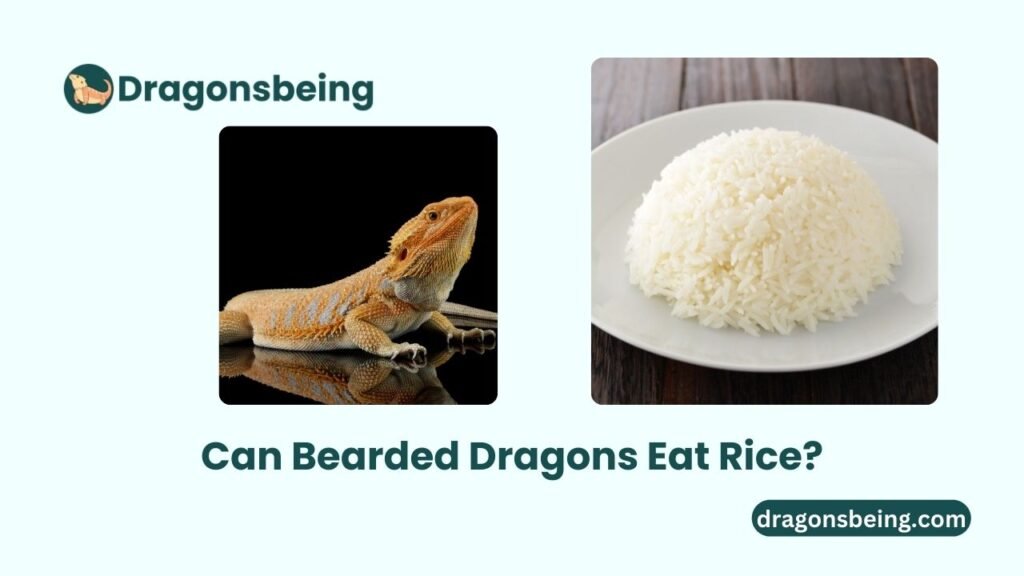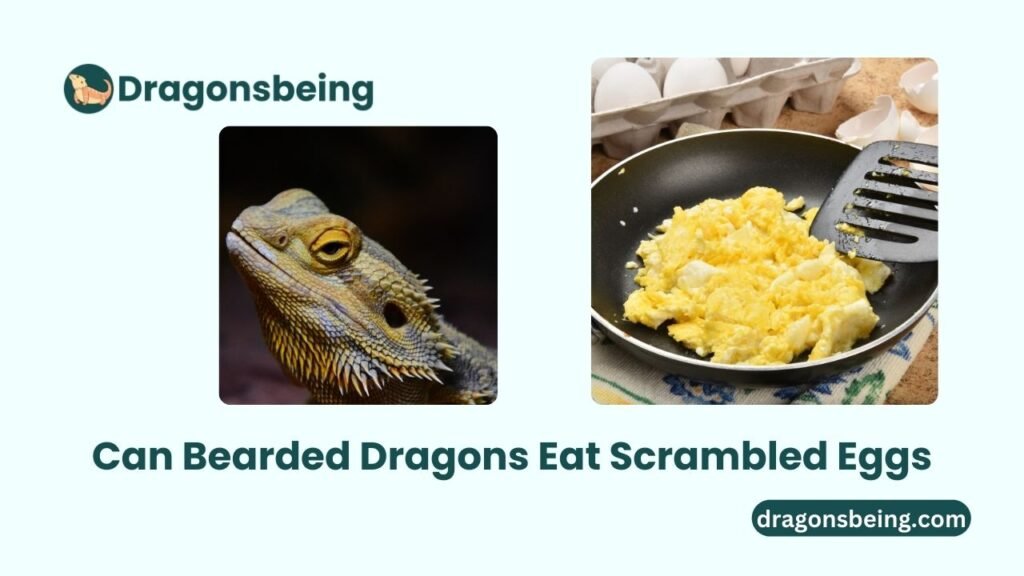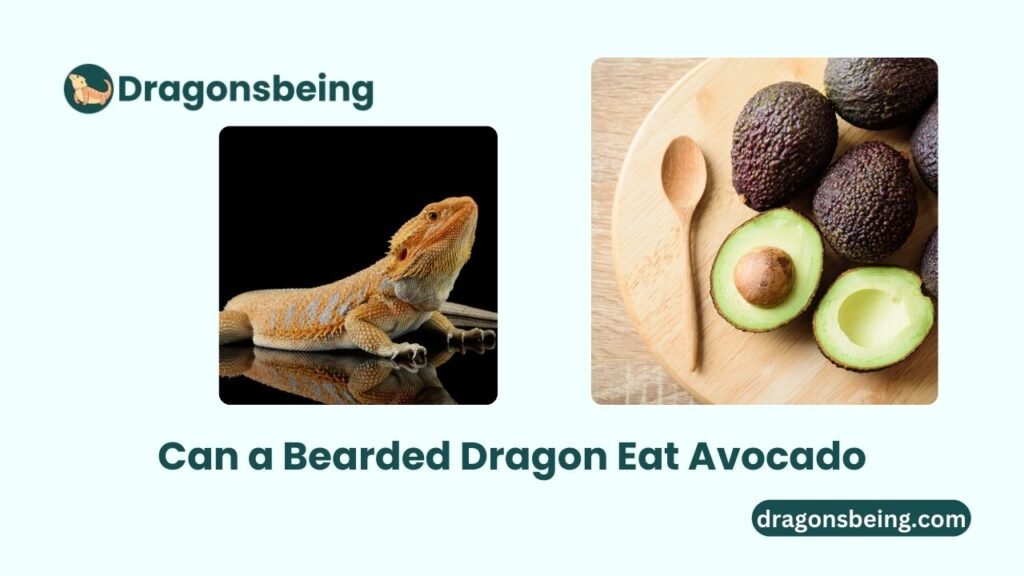Bearded dragons should not eat rice. This grain lacks the necessary nutrients and can cause digestive issues.
Bearded dragons are popular pets known for their unique appearance and friendly nature.
As a responsible owner, it’s crucial to understand their dietary needs.
They thrive on a varied diet, primarily consisting of insects, vegetables, and fruits. While it might be tempting to share human food, not all options are safe or beneficial.
Rice, for example, lacks essential nutrients that bearded dragons require.
Offering inappropriate foods can lead to health problems, including obesity and digestive complications.
Knowing what to feed your bearded dragon ensures they live a healthy and happy life. Always prioritize their nutritional needs for optimal growth and well-being.
The Basics Of Feeding Bearded Dragons
Feeding bearded dragons correctly is essential for their health. These reptiles have specific dietary needs. Understanding what they can eat helps prevent health issues. Proper nutrition keeps them active and happy.
Preferred Food Items
Bearded dragons thrive on a balanced diet. They enjoy a mix of insects and vegetables. Here are some preferred food items:
- Insects: Crickets, mealworms, and dubia roaches
- Vegetables: Collard greens, mustard greens, and squash
- Fruits: Strawberries, blueberries, and melons (in moderation)
Offer a variety to ensure proper nutrition. Fresh food keeps them interested. Remember to gut-load insects before feeding. This enhances their nutritional value.
Foods To Avoid
Not all foods are safe for bearded dragons. Some can cause serious health problems. Avoid feeding these items:
| Food Item | Reason to Avoid |
|---|---|
| Rice | Low nutritional value, hard to digest |
| Iceberg Lettuce | High water content, low nutrients |
| Citrus Fruits | Can cause stomach upset |
| Avocado | Toxic to reptiles |
Always research new foods before offering them. This ensures a healthy diet for your bearded dragon. Proper feeding habits lead to a happy pet.
Debunking Myths: Bearded Dragons And Grains
Many people wonder about the diet of bearded dragons. One common question is whether they can eat rice. Myths surround grains in their diets. Let’s explore these myths and find the truth.
Misconceptions About Bearded Dragons And Rice
Some believe that bearded dragons can eat rice without issues. This is not true. Here are some common misconceptions:
- Rice is a good source of nutrition: Rice lacks essential nutrients.
- All grains are safe: Many grains can harm bearded dragons.
- Grains provide energy: Bearded dragons need protein, not grains.
Feeding rice can lead to health problems. Bearded dragons thrive on a diet rich in insects and greens. Grains do not fit into this diet.
Grain Alternatives In A Bearded Dragon’s Diet
Choosing the right foods is crucial for your bearded dragon. Here are some great alternatives:
| Food Type | Benefits |
|---|---|
| Insects | High in protein and nutrients |
| Leafy Greens | Rich in vitamins and minerals |
| Fruits | Provide hydration and vitamins |
Here are some recommended foods:
- Crickets
- Mealworms
- Collard greens
- Blueberries
These foods offer essential nutrients. They support your bearded dragon’s health and growth.
Rice In A Bearded Dragon’s Diet
Bearded dragons are omnivores. They eat a mix of plants and insects. Many owners wonder about feeding them rice. Rice is a common food for humans. But is it safe for bearded dragons? This section explores the topic.
Potential Risks Of Feeding Rice
Feeding rice to bearded dragons can pose some risks. Here are key points to consider:
- Digestive Issues: Rice can be hard to digest.
- Low Nutritional Value: Rice lacks essential nutrients.
- Risk of Obesity: High carbohydrate content may lead to weight gain.
- Allergic Reactions: Some dragons may react negatively.
Nutritional Value Of Rice For Bearded Dragons
Understanding rice’s nutritional value is important. Here’s a breakdown:
| Nutrient | Amount per 100g |
|---|---|
| Calories | 130 |
| Protein | 2.7g |
| Carbohydrates | 28.2g |
| Fiber | 0.4g |
| Fat | 0.3g |
Rice is mostly carbohydrates. It does not provide enough protein or vitamins. Bearded dragons need a balanced diet. This diet includes insects, vegetables, and fruits.
Expert Opinions On Bearded Dragons And Rice
Understanding what bearded dragons can eat is crucial for their health. Rice often comes up in discussions. Experts have varied opinions on feeding rice to these reptiles.
Veterinary Advice On Rice As A Food Option
Veterinarians generally advise against feeding rice to bearded dragons. Rice lacks essential nutrients. It can lead to digestive problems.
Here are some points from veterinary experts:
- Low Nutritional Value: Rice does not provide necessary vitamins.
- Digestive Issues: Hard to digest for bearded dragons.
- Not Natural: Rice is not part of their natural diet.
Veterinarians recommend focusing on leafy greens, insects, and fruits. These foods offer better nutrition.
Research Findings On Reptiles And Grains
Research shows grains are not suitable for bearded dragons. Studies focus on their natural diet, which is mostly insects and plants.
Key findings include:
| Study Aspect | Findings |
|---|---|
| Dietary Needs | High in protein and calcium. |
| Grains Impact | Can cause health problems. |
| Natural Diet | Includes insects and fresh vegetables. |
These findings confirm that grains like rice should not be part of a bearded dragon’s diet. Stick to healthy, natural options for the best results.
Healthy Alternatives To Rice
Bearded dragons can enjoy a variety of foods. Rice isn’t the best choice. Instead, opt for healthy, nutrient-rich alternatives. These options provide better nutrition and flavor.
Vegetable And Fruit Options
Vegetables and fruits can be excellent substitutes for rice. They offer essential vitamins and minerals. Here are some great options:
- Leafy Greens: Kale, collard greens, and dandelion greens.
- Carrots: Rich in vitamin A; shred them for easy eating.
- Squash: Zucchini and yellow squash are nutritious choices.
- Bell Peppers: Colorful and crunchy; provide vitamin C.
- Fruits: Blueberries, strawberries, and mangoes in moderation.
Chop vegetables into small, manageable pieces. This helps your bearded dragon digest them better.
Insect Prey Choices For Optimal Health
Insects are a vital part of a bearded dragon’s diet. They provide protein and essential nutrients. Here are some top insect choices:
| Insect | Benefits |
|---|---|
| Crickets | High in protein; promotes healthy growth. |
| Mealworms | Good source of fat; feed sparingly. |
| Dubia Roaches | Excellent protein source; easy to digest. |
| Silkworms | Rich in calcium; supports bone health. |
| Waxworms | High in fat; treat for special occasions. |
Ensure insects are gut-loaded and dusted with calcium. This helps boost their nutritional value.
Feeding Practices For Bearded Dragons
Feeding your bearded dragon the right foods is crucial. A balanced diet helps them grow strong and stay healthy. Understanding their dietary needs is essential for their well-being.
Creating A Balanced Diet Plan
Bearded dragons need a mix of foods. Their diet should include:
- Vegetables: Leafy greens, carrots, and squash.
- Fruits: Berries, apples, and melons in moderation.
- Protein: Crickets, mealworms, and other insects.
Rice is not a natural food for them. It lacks essential nutrients. Use rice sparingly, if at all.
Frequency And Portion Sizes
Feed your bearded dragon 2 to 3 times a week. Adjust portion sizes based on their age:
| Age Group | Frequency | Portion Size |
|---|---|---|
| Hatchlings (0-3 months) | Daily | 1-2 crickets |
| Juveniles (3-6 months) | Every other day | 5-10 crickets |
| Adults (6+ months) | Every 2-3 days | 10-20 crickets |
Monitor their weight and activity. Adjust feeding schedules as needed. Always provide fresh water. Keeping track of their diet ensures a happy and healthy pet.
Conclusion: Best Dietary Practices For Bearded Dragons
Bearded dragons thrive on a balanced diet rich in insects, greens, and vegetables. Rice lacks essential nutrients and can lead to digestive issues. Prioritizing appropriate foods ensures optimal health for these reptiles.
Summary Of Rice As A Dietary Choice
Bearded dragons are omnivores. They need a balanced diet for health. Rice is not a natural food for them. It lacks essential nutrients. Feeding rice can lead to digestive issues.
Here’s a quick overview of rice:
| Aspect | Details |
|---|---|
| Nutritional Value | Low in vitamins and minerals. |
| Digestibility | Hard for bearded dragons to digest. |
| Frequency | Not recommended as a regular food. |
Final Recommendations For A Healthy Bearded Dragon Diet
Focus on a varied diet for your bearded dragon. Incorporate these foods:
- Leafy greens like kale and collard greens.
- Vegetables such as bell peppers and squash.
- Insects like crickets and mealworms.
- Occasional fruits like berries and melons.
Follow these guidelines:
- Provide fresh food daily.
- Ensure proper size of food items.
- Use calcium and vitamin supplements.
- Avoid sugary or fatty foods.
Monitor your bearded dragon’s health. Adjust their diet as needed. Consult a vet for specific dietary advice.
Frequently Asked Questions
Can Bearded Dragons Eat Cooked Rice?
Bearded dragons can eat cooked rice in small amounts, but it’s not a necessary part of their diet.
Is Rice Good For Bearded Dragons?
Rice lacks essential nutrients for bearded dragons and should only be an occasional treat.
What Foods Are Best For Bearded Dragons?
Leafy greens, insects, and fruits are ideal for a balanced bearded dragon diet.
Can Bearded Dragons Eat Grains?
Grains like rice and oats can be offered sparingly, but focus on more nutritious options.
How Often Can Bearded Dragons Eat Rice?
Limit rice to rare occasions, ensuring a diverse diet is prioritized for overall health.
What Happens If Bearded Dragons Eat Too Much Rice?
Excess rice can lead to digestive issues and nutritional imbalances, affecting your dragon’s health.
Conclusion
Feeding bearded dragons requires careful consideration of their dietary needs. While rice may seem harmless, it lacks essential nutrients. A balanced diet of fruits, vegetables, and insects is best for their health. Always prioritize foods that support their growth and well-being.
Keep your dragon happy and thriving with proper nutrition.

Hi, I’m Dr. Michelle Mayers, a veterinary professional with a deep passion for animal health and well-being. Over the years, I’ve dedicated my life to caring for animals and helping pet owners better understand their furry, feathered, or scaly companions. On my blog, Dragonsbeing, I share insights, tips, and stories that aim to educate, inspire, and connect with fellow animal lovers. Join me at Dragonsbeing as we explore the fascinating world of veterinary care and celebrate the special bond between humans and animals!


